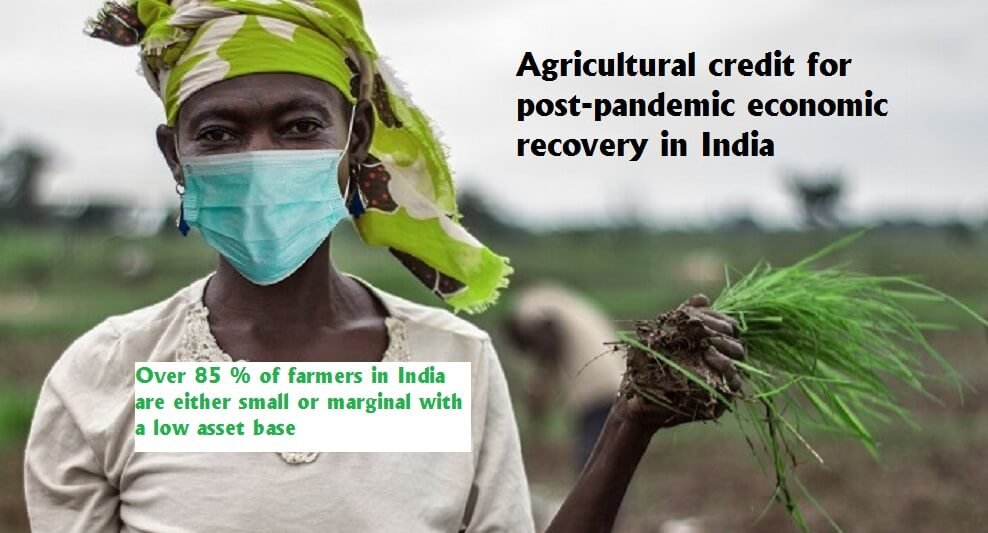In the recent Union budget, the target for agricultural credit was increased to ₹16.5 lakh crore from the previous target of ₹15 lakh crore. This is important in view of the fact that credit plays a catalytic role in agricultural development. With the agricultural sector expected to be a driver of economic recovery in the post-covid 19 era, increased allocation of agricultural credit is a welcome step.
In fact, the agriculture sector was the only sector with positive growth even when the Indian economy forecast was downgraded and projected to be negative. For the first quarter of 2020 (April-June), the construction sector recorded a negative growth of (-50%), followed by the services sector (-47%) and the manufacturing sector (-37%) for Covid-19. In the same period, the agricultural sector registered a positive growth of 3%.
Also Read: India’s Agri Credit Target elevated to ₹ 16.5 lakh crore in the budget 2021
Although the agricultural sector has performed well at the aggregate level, individual farmers have suffered negative economic shocks due to difficulties in marketing products, particularly perishables. Credit can cushion income shocks, help farmers overcome liquidity constraints and finance the next agricultural season. Having said that, there is much scope for improving the targeting of agricultural credit in India.
Agricultural credit as a growth catalyst
Over 85 % of farmers in India are either small or marginal with a low asset base. With little savings or resources, it is difficult for farmers to overcome income shocks. Due to liquidity constraints, farmers may spend less than optimal amounts on key inputs such as seeds and fertilizers, affecting both productivity and income.
Also Read: Commission Reco and Policy Attention to Improving Farmers’ Income
Without access to credit, there is a high chance that farmers will be trapped in the ‘poverty trap.’ If, for any reason, farmers do not have access to formal credit (from formal lending institutions such as commercial banks, cooperatives, etc.), the dependence of farmers on money lenders as a source of credit increases, who often charge exorbitant interest rates.
In summary, agricultural credit can promote the optimal use of resources, improve technology adoption and smoothens the consumption expenditure , especially after a bad agricultural season.
Sources of agricultural credit and access equity
Despite decades of effort to increase the share of formal loans, almost 37% of households still depend on informal sources such as money lenders, as per the latest All India Debt and Investment Survey (AIDIS) by NSSO (70th round). Dependence on non-institutional sources is higher in the Eastern States; 55 % of farmers in Bihar depends on non-institutional sources.
Also Read: NABARD estimates15.46 % higher credit potential than the previous year
Furthermore, it is estimated that the extent to which small and marginal farmers have access to formal credit is as low as 40%. (GoI, 2019). Money lenders charge interest rates ranging from 20 to 28 per cent per year, which is almost three to four times the rate charged by the formal sources (Kumar et al 2020). Weaker sections of society, both those belonging to disadvantaged social categories and those with less land, are more likely not to have access to formal financing. Unfortunately, these are the farmers who are in need of credit. Including these weaker sections of the society in the ambit of formal financing is the need of the hour.
Note: The views expressed are of authors alone and do not represent the views of the institute.
Authors:
1) Mr. Aditya K S
Scientist at the Division of Agricultural Economics, ICAR-New Delhi.
2) Dr. Girish Kumar Jha
Principal Scientist at the Division of Agricultural Economics, ICAR-New Delhi.


















Add Comment